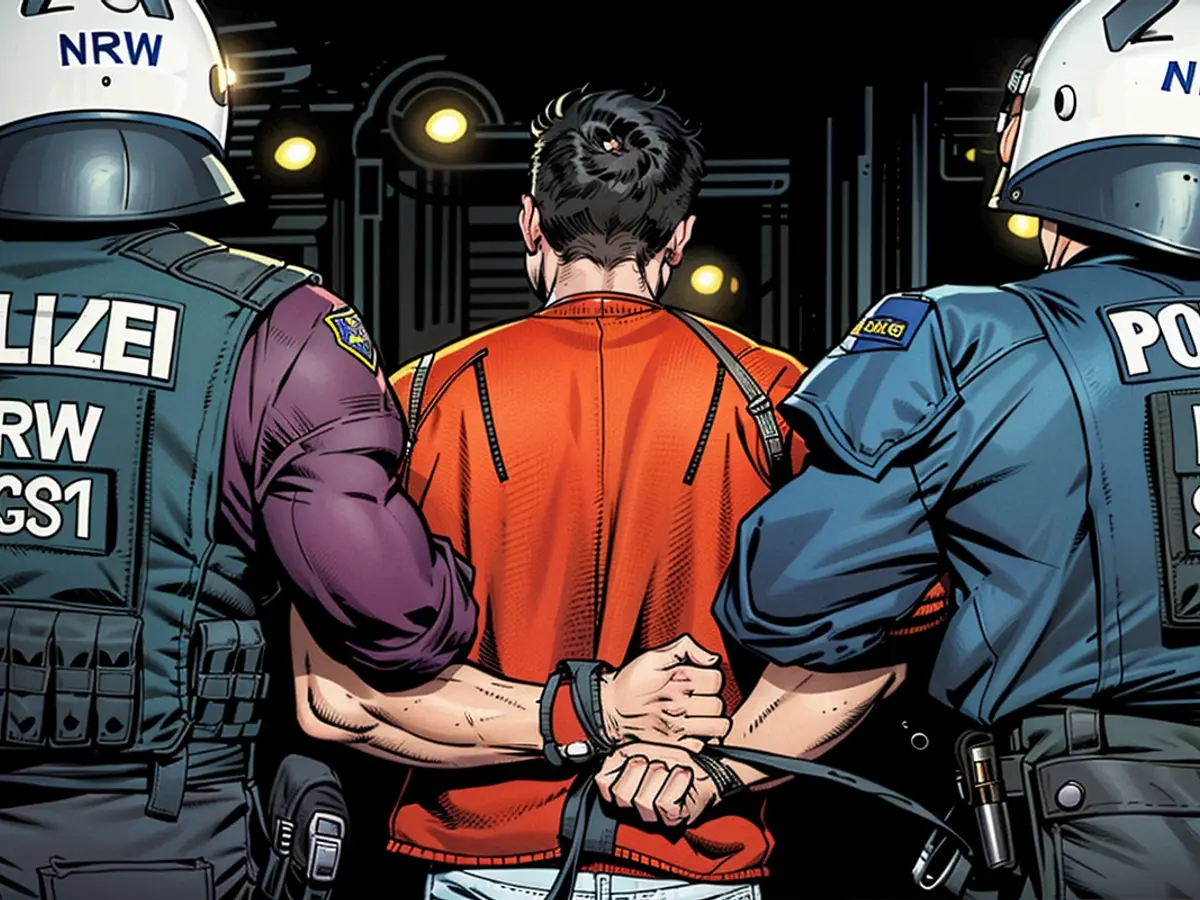The police in North Rhine-Westphalia will always name the origin of suspects
In Germany, differing opinions on the connection between migration and crime have existed for years. The police in North Rhine-Westphalia aim to address this with a transparency offensive, according to their own statement. In the future, the nationality of suspects will be mentioned in all cases.
The Ministry of the Interior confirmed on request, following corresponding media reports, that the media decree for the police will be revised in this regard. In principle, the instruction will apply to all offenses in which the suspect has been clearly identified. However, if the responsible public prosecutor's office comes to the conclusion in individual cases that the nationality should not be mentioned in the information to the media, this will be complied with.
The new regulation is intended to create transparency, the ministry explained. "Moreover, the police in NRW want to dispel speculations and counter the accusation of wanting to hide something."
So far, the decree on press and public relations work of the police in North Rhine-Westphalia from 2011 has largely oriented itself towards the code of the German Press Council. According to this, the nationality or origin of perpetrators or suspects should only be mentioned if a legitimate interest of the public outweighs the protective interests of the person concerned. However, there are now increasingly journalistic inquiries about the nationality in cases of crime, a spokesman said. A new version of the decree appears necessary.
AfD wants to know first names
In recent years, there has been a wide-ranging societal debate about whether crime also comes into the country with migration and which groups are particularly affected in which areas of crime. The AfD opposition has been asking for the first names of perpetrators in its parliamentary inquiries for years in order to find out more. In many cases, the lists of the Ministry of the Interior, several pages long, have shown that typically German names appear just as frequently in the crime statistics as names that may suggest a migration background.
Critics of the mention of nationalities fear that this provides ammunition for racist hate. Supporters argue that only transparency can debunk speculation and false claims.
The Commission has endorsed the revised media decree for the police, which will now include the mention of suspects' nationalities in all clearly identified offenses, as confirmed by the Ministry of the Interior. The Police in North Rhine-Westphalia, aiming to dispel speculations and counter accusations of hiding information, will follow this new regulation to increase transparency.






